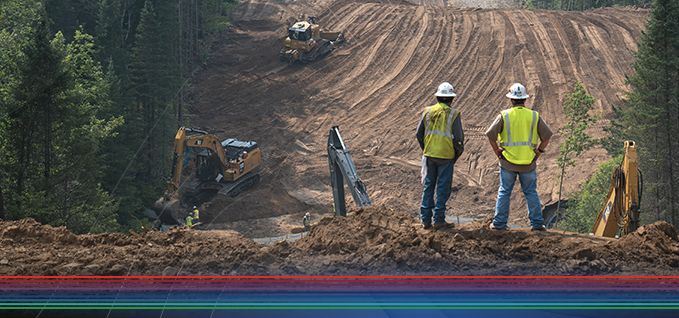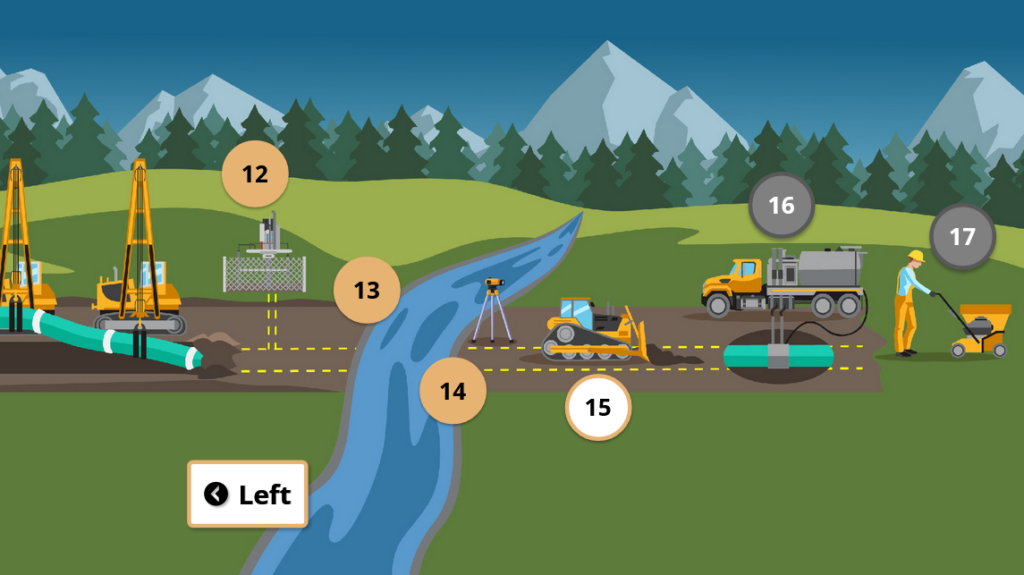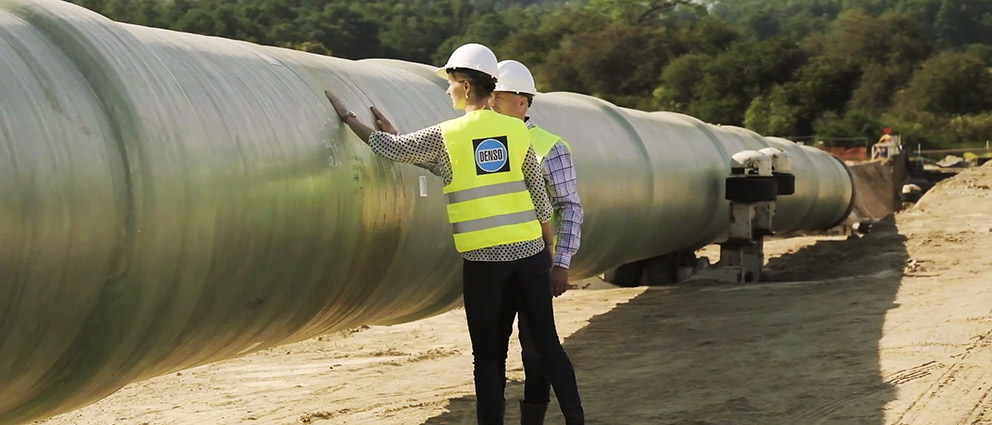Midland oilfield pipeline services: Eco-friendly initiatives explained
Understanding the Secret Features of Pipeline Providers and Their Influence on Efficiency
Pipeline services play an important role in various sectors, affecting functional effectiveness significantly. Trick attributes, such as advanced surveillance innovations and maintenance methods, are crucial for reducing downtime. Furthermore, governing compliance assurances safety and security and environmental management. The interplay between layout, facilities, and financial factors can complicate these procedures. Recognizing exactly how these aspects influence overall effectiveness increases vital concerns concerning ideal techniques and future growths in the area.
The Role of Modern Technology in Pipeline Monitoring
As innovations in technology remain to progress, the significance of reliable pipeline monitoring has actually ended up being progressively evident. Modern pipe systems depend on advanced monitoring tools that boost functional efficiency and security. Technologies such as real-time information analytics, sensing units, and drones provide operators with immediate understandings into pipeline problems, allowing them to detect leakages, deterioration, and various other possible concerns prior to they rise right into substantial issues.
In addition, the integration of Net of Things (IoT) devices has actually transformed conventional monitoring approaches, enabling continuous monitoring and automated reporting. This aggressive approach not only decreases dangers yet also enhances maintenance timetables and resource appropriation. Furthermore, advanced software platforms assist in data visualization and analysis, empowering decision-makers to respond promptly to abnormalities. Collectively, these technological innovations not only improve pipe honesty but also foster environmental stewardship by minimizing the potential effect of leaks and spills.
Maintenance Techniques for Boosted Performance
Reliable upkeep techniques are crucial for enhancing pipe effectiveness. Carrying out anticipating maintenance techniques, adhering to routine evaluation procedures, and developing durable emergency response plans can greatly boost functional dependability. These approaches not only minimize downtime however also contribute to the total safety and security and integrity of pipeline systems.
Anticipating Upkeep Strategies
Predictive maintenance methods are progressively recognized for their capability to enhance functional effectiveness in pipeline solutions. By leveraging data analytics and keeping track of technologies, these strategies allow drivers to anticipate tools failures prior to they happen. This positive approach decreases unexpected downtime, lowers upkeep prices, and prolongs the life-span of critical properties. Sensing units and IoT devices play a crucial role in accumulating real-time data, enabling the evaluation of tools health and efficiency patterns. Artificial intelligence algorithms analyze this data to recognize patterns and forecast prospective concerns. Consequently, pipe operators can schedule upkeep tasks during non-peak times, optimizing resource allotment and guaranteeing continual operation. Eventually, the fostering of anticipating maintenance promotes an extra dependable and efficient pipeline facilities.

Regular Examination Protocols
Regular evaluation procedures work as a keystone of maintenance methods targeted at boosting performance in pipeline procedures - Midland oilfield pipeline services. These methods involve methodical evaluations of pipeline stability, focusing on finding prospective concerns prior to they rise. Routine evaluations typically include aesthetic analyses, leakage discovery modern technologies, and stress surveillance to assure peak performance. By sticking to well-known schedules, drivers can determine deterioration, material wear, or blockage, therefore lessening downtime and fixing prices. Additionally, information gathered during inspections can inform anticipating maintenance efforts, enabling for a positive method to pipeline management. Inevitably, routine examinations not only extend the lifespan of pipe facilities yet additionally contribute to more secure and much more reputable transport of resources, enhancing total operational performance
Emergency Situation Reaction Planning
Emergency situation feedback planning is necessary for keeping effectiveness in pipeline procedures, making certain that operators are prepared to deal with unpredicted events promptly and properly. A well-structured emergency situation response plan consists of clear protocols, marked duties, and interaction approaches to reduce threats connected with pipeline failures. Routine drills and training boost group preparedness and familiarize personnel with emergency situation procedures. Additionally, having readily available sources, such as spill control tools and emergency situation call checklists, can considerably reduce action times. By incorporating real-time monitoring technologies, drivers can promptly recognize and react to problems, decreasing ecological impact and operational downtime. Inevitably, a comprehensive emergency situation response strategy not just safeguards assets and personnel yet likewise reinforces the overall efficiency of pipeline services.
Regulative Conformity and Safety And Security Specifications
Regulative conformity and security requirements play an important duty in the pipeline services market. Creek Pipe local contractor. Following market regulations assures that companies apply effective security methods and take the chance of administration techniques. This commitment not only protects personnel and the setting however also boosts total functional performance
Conformity With Sector Laws
Conformity with market regulations is necessary for guaranteeing the safety and efficiency of pipeline operations. Governing structures, such as those established by the Environmental Protection Agency (EPA) and the view Pipeline and Hazardous Materials Safety Administration (PHMSA), established stringent standards that operators need to follow. These guidelines cover various aspects, consisting of pipe design, building, maintenance, and monitoring, guaranteeing that systems operate safely and successfully. Non-compliance can cause severe charges, operational delays, and environmental threats. By adhering to these laws, pipe firms not only protect public safety and the atmosphere however also boost their operational efficiency. Eventually, governing compliance promotes trust among stakeholders, ensuring that pipeline services can run effortlessly in a competitive landscape while satisfying lawful obligations.

Safety Method Application
Effective security protocol implementation is an essential part of pipeline operations, very closely connected to governing compliance and safety and security criteria. Abiding by these methods not only assures the defense of workers however likewise safeguards the atmosphere and framework. A robust safety and security structure consists of routine training, detailed inspections, and using ideal safety and security equipment. Organizations has to stay alert go now in upgrading their procedures to mirror modifications in laws and technical improvements. Conformity with recognized safety criteria reduces the danger of accidents and boosts operational effectiveness. Furthermore, a society of safety fosters worker interaction and accountability, contributing to overall business success. Ultimately, reliable safety protocol implementation is extremely important in keeping the integrity of pipeline solutions and achieving long-term sustainability in procedures.
Threat Administration Techniques
Applying robust risk administration techniques is crucial for guaranteeing that pipeline operations abide by regulatory demands and safety and security criteria. Organizations should recognize potential hazards and assess risks connected with pipe tasks. This involves carrying out thorough examinations, using innovative tracking modern technologies, and preserving conformity with industry policies. Regular training for personnel on security procedures boosts situational awareness and prepares teams to respond properly to emergencies. Furthermore, establishing contingency plans and carrying out drills can substantially minimize risks. Working together with regulatory bodies makes certain placement with advancing safety and security criteria. By focusing on danger management, pipeline solutions can boost operational performance while protecting both the atmosphere and public safety and security. Ultimately, an aggressive approach to take the chance of management fosters a culture of safety within the sector.
Pipeline Design and Facilities Considerations
Just how can the layout and infrastructure of pipes affect total functional effectiveness? The setup of pipelines plays a vital role in identifying their performance. Efficient design minimizes friction losses, therefore minimizing power consumption during fluid transportation. Factors such as diameter, product selection, and format directly effect flow rates and upkeep needs.
Furthermore, critical positioning of valves and keeping track of systems improves operational control and safety and security. Midland pipeline construction company. Infrastructure factors to consider, including ease of access for repair and maintenance, greatly affect downtime and general performance
Integrating advanced technology for real-time surveillance helps with punctual detection of leakages or inadequacies, making certain quick responses to issues. The overall structural integrity, influenced by product durability and environmental elements, likewise forms long-lasting operational success. Thoughtful design and durable facilities are vital for optimizing pipe effectiveness, ultimately adding to the reliability and profitability of pipeline solutions.
Ecological Impact and Sustainability Practices
While the demand for pipe services remains to expand, comprehending the ecological impact and embracing sustainability methods has actually come to be significantly vital. The building and construction and procedure of pipes can notably affect environments, wildlife environments, and water sources. To alleviate these effects, business are executing advanced technologies and methods focused on minimizing emissions, stopping spills, and reducing land disturbance.
Sustainability efforts often consist of utilizing environmentally pleasant materials, improving power effectiveness, and using sustainable energy resources to power procedures. In addition, business are progressively performing thorough environmental analyses prior to job initiation, ensuring conformity with policies and read this article stakeholder interaction.

Price Monitoring and Financial Consider Pipeline Providers
As the pipe industry expands, effective expense administration and comprehending economic aspects become important for maintaining competitiveness. Firms face different financial pressures, including changing product expenses, labor expenditures, and governing conformity fees. To browse these difficulties, pipe provider must take on calculated monetary preparation and budgeting methods.
Spending in modern technology can enhance operational efficiency, ultimately reducing prices over time. Furthermore, efficient job management guarantees that sources are designated efficiently, reducing hold-ups and unforeseen costs.

Market problems, such as need for energy and geopolitical elements, additionally influence financial stability. Companies should stay active, changing their approaches in response to these external elements.
Frequently Asked Questions
What Are the Different Sorts Of Pipeline Solutions Available?
Numerous kinds of pipeline solutions include transport, storage space, maintenance, inspection, and repair. Each solution plays an essential duty in ensuring the seamless activity of materials, enhancing security, and lessening operational disruptions throughout different industries.
How Typically Should Pipeline Inspections Be Performed?
Pipeline evaluations ought to be performed consistently, commonly every one to three years, depending on the kind and condition of the pipeline. A lot more constant evaluations may be needed for older or risky pipes to ensure safety and security and honesty.
What Are the Key Causes of Pipeline Failures?
The major sources of pipe failings consist of deterioration, defective construction, product issues, exterior damages, leakages, and functional mistakes. Each element contributes substantially to potential threats, highlighting the importance of normal maintenance and tracking for safety.
Exactly How Can Firms Improve Pipeline Service Dependability?
Firms can enhance pipeline service reliability by carrying out routine upkeep timetables, making use of advanced tracking technologies, conducting thorough evaluations, investing in worker training, and taking on aggressive risk administration approaches to prepare for and minimize possible failings.
What Role Do Operators Play in Pipeline Services?
Operators play a vital duty in pipe solutions by making sure secure transport, maintaining tools, keeping track of system stability, coordinating maintenance, and reacting to emergencies. Their knowledge directly influences functional efficiency and lessens disturbances in solution delivery.